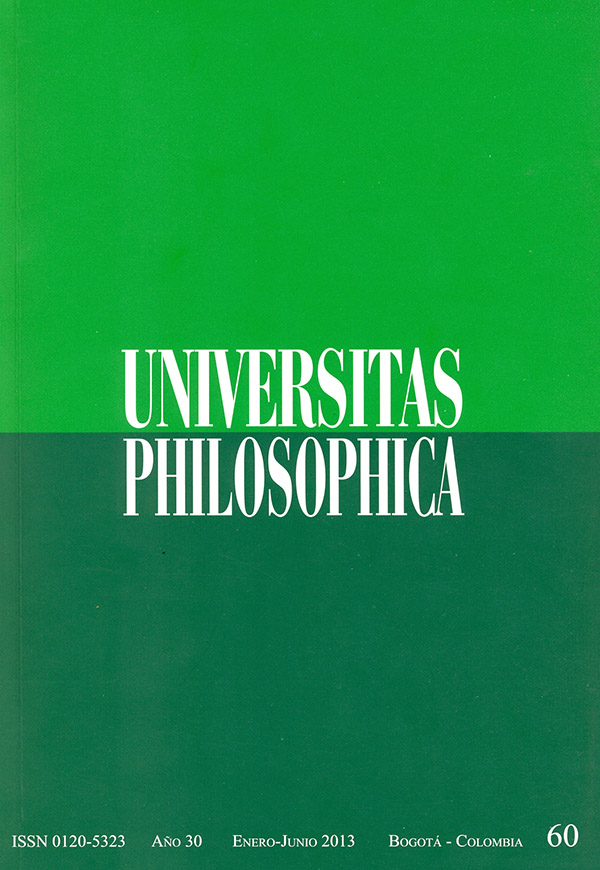Resumen
El objetivo de este trabajo es presentar una crítica a la interpretación convencionalista del problema del seguimiento de reglas que sostiene Saul Kripke en su libro Wittgenstein. A propósito de reglas y lenguaje privado. Para lograrlo proponemos una lectura detallada de los parágrafos §§185-217 de las Investigaciones filosóficas en los que muestra que hay casos en los que el significado de expresiones como “seguir una regla” y “contravenirla” no se determina solamente apelando a criterios convencionales, como sostendría Kripke. Esta interpretación nos permite afirmar que si bien, Wittgenstein acepta la importancia de las costumbres y las instituciones para la correcta elaboración de juicios normativos, también señala que hay un espacio transconvencional más básico –el espacio de lo humano– que nos permite reconocer actitudes normativas en cursos de acción ajenos a los que acostumbramos y que, por tanto, sirve de apoyo para emitir juicios normativos con sentido. En consecuencia, y siguiendo nuestra lectura del §206, podemos identificar en las observaciones sobre seguimiento de reglas de Wittgenstein, elementos que permiten ir de una interpretación puramente convencionalista de las expresiones normativas a una interpretación antropológica.
Esta revista científica se encuentra registrada bajo la licencia Creative Commons Reconocimiento 4.0 Internacional. Por lo tanto, esta obra se puede reproducir, distribuir y comunicar públicamente en formato digital, siempre que se reconozca el nombre de los autores y a la Pontificia Universidad Javeriana. Se permite citar, adaptar, transformar, autoarchivar, republicar y crear a partir del material, para cualquier finalidad (incluso comercial), siempre que se reconozca adecuadamente la autoría, se proporcione un enlace a la obra original y se indique si se han realizado cambios. La Pontificia Universidad Javeriana no retiene los derechos sobre las obras publicadas y los contenidos son responsabilidad exclusiva de los autores, quienes conservan sus derechos morales, intelectuales, de privacidad y publicidad.
El aval sobre la intervención de la obra (revisión, corrección de estilo, traducción, diagramación) y su posterior divulgación se otorga mediante una licencia de uso y no a través de una cesión de derechos, lo que representa que la revista y la Pontificia Universidad Javeriana se eximen de cualquier responsabilidad que se pueda derivar de una mala práctica ética por parte de los autores. En consecuencia de la protección brindada por la licencia de uso, la revista no se encuentra en la obligación de publicar retractaciones o modificar la información ya publicada, a no ser que la errata surja del proceso de gestión editorial. La publicación de contenidos en esta revista no representa regalías para los contribuyentes.


